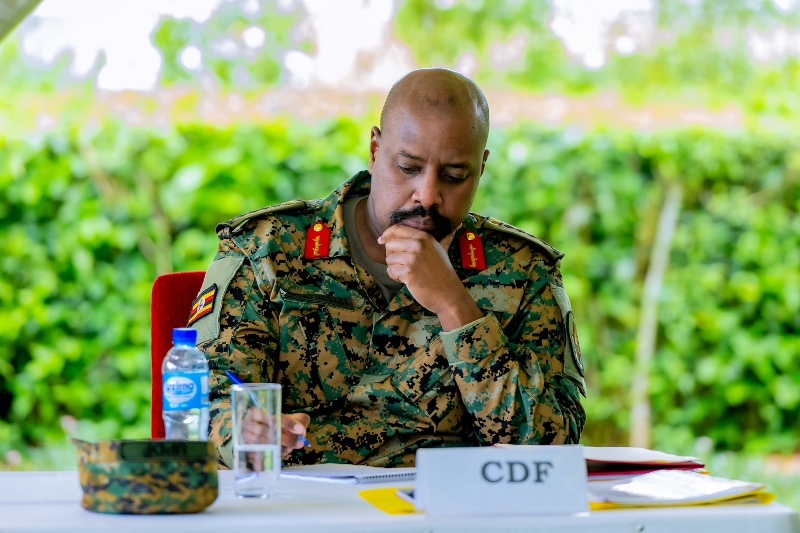Muhoozi Kainerugaba: A CDF who gives life and hates stupid letters from human right body asking him to free tortured political prisoners
Muhoozi’s reaction, characterized by dismissiveness, aggression, and unapologetic authoritarianism, has shocked many Ugandans. It has fueled concerns about the eroding rule of law and the increasing influence of the military in civilian affairs.

A confrontation of epic proportions is unfolding in Uganda, pitting the nation’s military might against its human rights commission. The spark? A scathing rebuke from Gen. Muhoozi Kainerugaba, Senior Presidential Advisor for Special Operations, in response to a release order issued by the Uganda Human Rights Commission (UHRC) for Edward Rogers Ssebuufu, better known as Eddie Mutwe, a key ally of opposition leader Bobi Wine.
On May 2nd, 2025, the UHRC, led by Chairperson Mariam Wangadya, formally directed the Chief of Defence Forces to immediately release Ssebuufu, citing his unlawful detention since April 26th, 2025. Invoking Article 53(2)(a) of the Constitution and Rule 31 of the UHRC (Procedure) Rules, the letter warned the army that continued detention would constitute contempt of the Constitution.
Instead of compliance, the UHRC received a defiant backlash. A public statement, widely attributed to Gen. Muhoozi and rapidly circulating online, read: “LOL! If these people value the lives we gave them they MUST NEVER even think of sending me such a STUPID letter again! This is their last warning! I expect an apology.”
The raw, inflammatory tone of Muhoozi’s response has ignited a firestorm across Uganda’s political landscape. The incident raises serious questions about the fragile balance between civilian institutions and the entrenched power of the military.
The UHRC’s position was clear and legally grounded: Eddie Mutwe’s detention without charges since April 26th represented a blatant violation of his constitutional rights. Having determined the detention unlawful, the Commission demanded immediate release, threatening legal repercussions for contempt under Article 53(1)(d) of the Constitution. The fact that the letter was formally received and stamped by the Office of the Chief of Defence Forces only underscores the gravity of the subsequent defiance.
Muhoozi’s reaction, characterized by dismissiveness, aggression, and unapologetic authoritarianism, has shocked many Ugandans. It has fueled concerns about the eroding rule of law and the increasing influence of the military in civilian affairs.
The National Unity Platform (NUP), the leading opposition party, has condemned Muhoozi’s response, decrying it as “dangerous” and indicative of Uganda’s slide towards military rule.
“The arrogance and disdain for lawful institutions displayed here is terrifying,” stated Joel Ssenyonyi, NUP spokesperson. “What we are seeing is a total collapse of civilian oversight and a military that no longer hides its contempt for constitutionalism.”
Ssenyonyi further emphasized the broader implications of the incident: “If the Uganda Human Rights Commission, a constitutional body, can be insulted and threatened for doing its job, what message does that send to the rest of the public?”
As of now, the UHRC has yet to issue a formal response to Muhoozi’s statement. The silence leaves many wondering how the Commission will navigate this unprecedented challenge to its authority and whether the incident will usher in a new era of tension between Uganda’s military and the institutions charged with protecting its citizens’ fundamental rights. The future of constitutionalism in Uganda may well hinge on the resolution of this volatile situation.







